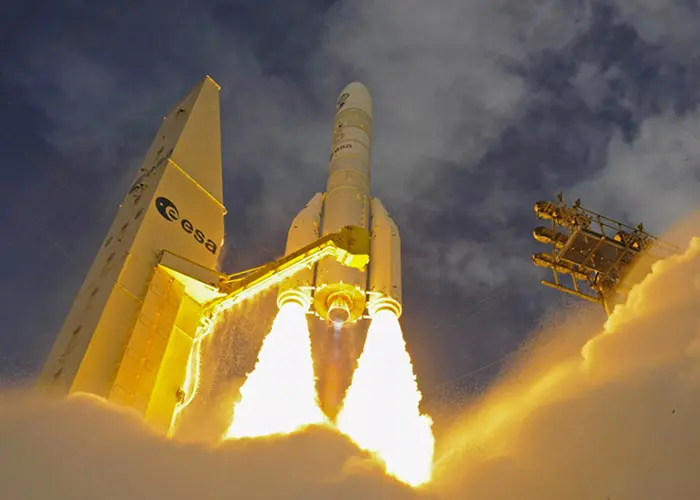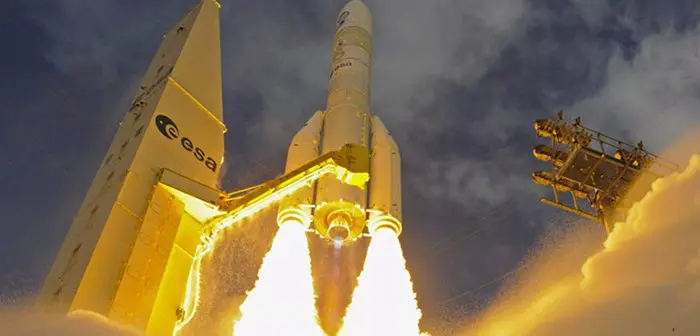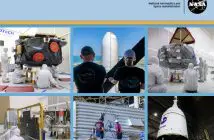
A two-day European Space Agency meeting in Paris earlier this week has highlighted the importance of international cooperation concerning space.
The European Commissioner for Defence and Space Andrius Kubilius addressed the Council, laying particular emphasis on the evolving geopolitical situation and the co-dependencies between space and defence during the meeting.
An enabling resolution for the European Resilience from Space Programme was passed. This will allow the development of a new optional programme as part of the proposal for the Council at ministerial level in November.
The programme intends to use space applications for resilience and security purposes initially focusing on Earth observation with high temporal and spatial resolution, supported by navigation and telecommunications applications in a system of systems approach.
ESA Director General Josef Aschbacher reported that ESA member states held deep discussions on possible impacts of the NASA budget since the President’s Budget Request for Fiscal Year 2026 significantly reduces the budget for the American space agency.
The analysis remains a work in progress as the federal budget process continues in the United States. Meanwhile, ESA has been instructed by the member states to continue to increase resilience and autonomy and make sure European space missions have the technologies they need. The director general reiterated the importance ESA places on international collaboration, evidenced by the recent joint statement of intent between ESA and ISRO, and the reinforcement of ESA’s relationship with Canada during recent bilateral meetings.
Council approved several cooperation agreements, strengthening its collaboration with international partners, notably:
- An extension of the memorandum of understanding between ESA and the United Nations Human Settlements Programme on cooperation in the use of EO data and technology for urban environments and human settlements. The MoU covers important global challenges in sustainable urban development with integrated solutions using Earth observation.
- Extension of agreement between ESA and the European Maritime Safety Agency concerning cooperation in support of maritime activities. The agreement, which first entered into force in July 2010, will be extended for five years from July and provides the general framework for the organisations to work together in areas such as the development and use of space-based systems in support of maritime safety, security, surveillance and combating pollution from maritime traffic.
ESA member states also approved a proposal for reinforced collaboration with the State Space Agency of Ukraine, the agency responsible for the development of Ukraine’s space science, space applications exploration, and international cooperation activities.
The collaboration on foot of a request by the SSAU will involve the provision of technical assistance and expertise in the areas of exploration, Earth observation for agriculture and ecological monitoring services, and space weather.
The collaboration will take place under the framework cooperation agreement with the Government of Ukraine, which has been in place since 2008 and was renewed by unanimous decision last year for a period up to February 2029.
Chair of the ESA Council Renato Krpoun confirmed that ESA’s2024 financial statements had been audited with no observations and financial information will be updated in the 2024 Annual Report which has now been published online.





